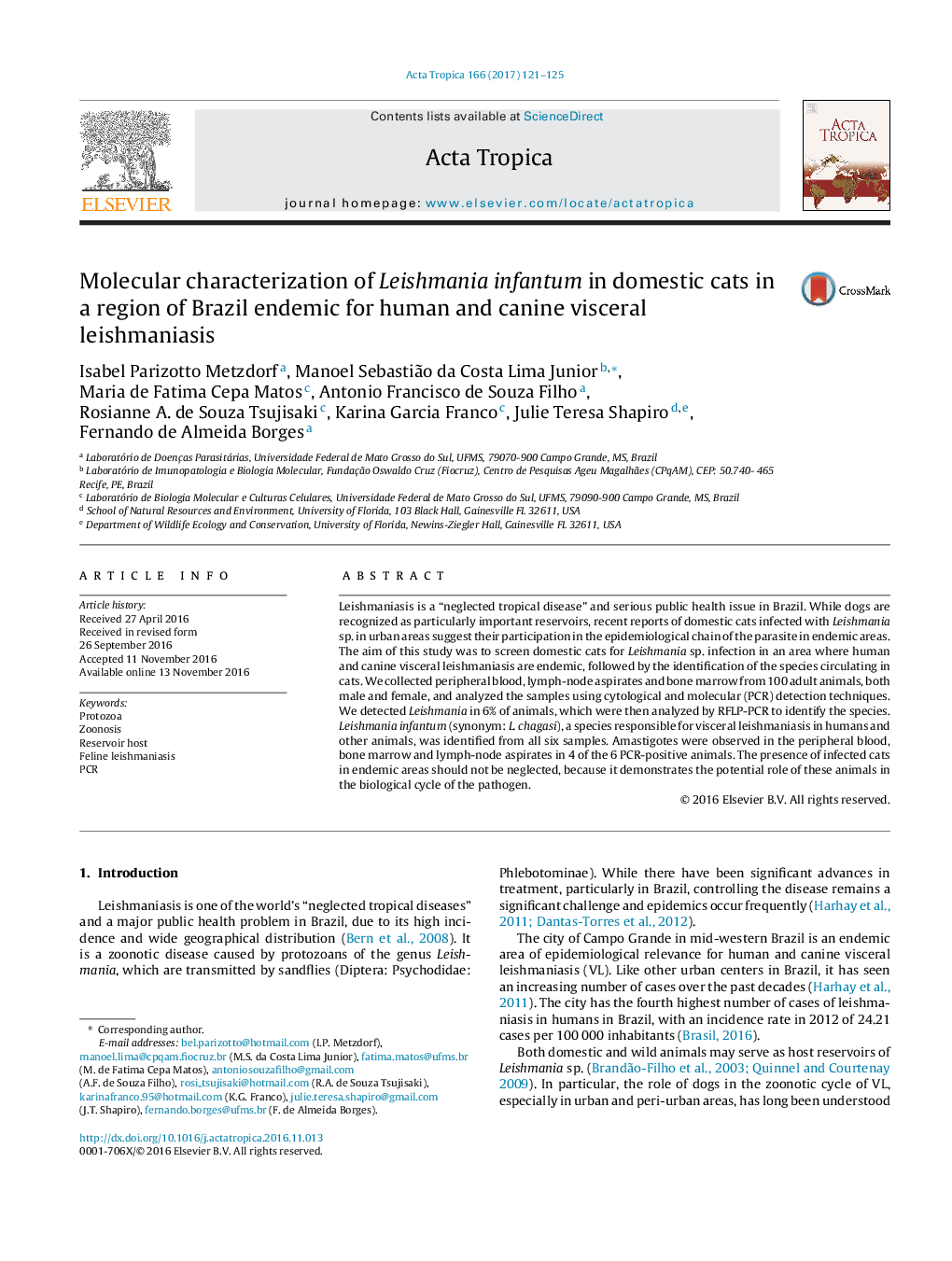| Article ID | Journal | Published Year | Pages | File Type |
|---|---|---|---|---|
| 5670898 | Acta Tropica | 2017 | 5 Pages |
â¢6/100 domestic cats tested positive for Leishmania infantum in Campo Grande, Brazil.â¢First molecular characterization of L. infantum in cats in Campo Grande.â¢Clinical findings in cats naturally infected by L. infantum are nonspecific.â¢Emphasizes potential role of cats in visceral leishmaniasis epidemiology.
Leishmaniasis is a “neglected tropical disease” and serious public health issue in Brazil. While dogs are recognized as particularly important reservoirs, recent reports of domestic cats infected with Leishmania sp. in urban areas suggest their participation in the epidemiological chain of the parasite in endemic areas. The aim of this study was to screen domestic cats for Leishmania sp. infection in an area where human and canine visceral leishmaniasis are endemic, followed by the identification of the species circulating in cats. We collected peripheral blood, lymph-node aspirates and bone marrow from 100 adult animals, both male and female, and analyzed the samples using cytological and molecular (PCR) detection techniques. We detected Leishmania in 6% of animals, which were then analyzed by RFLP-PCR to identify the species. Leishmania infantum (synonym: L. chagasi), a species responsible for visceral leishmaniasis in humans and other animals, was identified from all six samples. Amastigotes were observed in the peripheral blood, bone marrow and lymph-node aspirates in 4 of the 6 PCR-positive animals. The presence of infected cats in endemic areas should not be neglected, because it demonstrates the potential role of these animals in the biological cycle of the pathogen.
Graphical abstractDownload high-res image (115KB)Download full-size image
